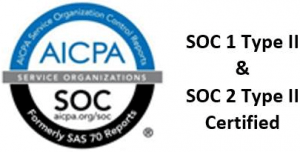
Consumers and businesses have several protections regarding debt. These protections keep collection agencies from aggressively pursuing debts or using unethical practices. One of those protections is the Fair Debt Collection Practices Act (FDCPA).
The FDCPA limits what collectors can do and say to consumers. It also allows consumers to validate a debt. The Commercial Collection Agencies of America (CCAA) Code of Ethics requires collection agencies to validate debts on request.
What Is Debt Validation?
Debt validation is proving that a debt belongs to an individual or business. However, debt isn’t forever. There are statutes of limitations in many states that restrict the number of years a company has to try to collect a debt. Once the statute of limitations is up, the creditor or collection agency can no longer pursue the debt.
That doesn’t stop some agencies from trying, though. Debt validation gives a consumer or business the chance to verify that a debt is legitimate before they begin to repay it.
The debtor needs to send a validation request to the collection agency during the debt validation process. The letter should state what debt the debtor is writing about and explain why they don’t owe it.
Debt Validation Facts
There’s a lot of misinformation floating around about debt collections and the debt validation process. Here’s what’s fact—and what’s not—under the FDCPA.
1. The Validation Process
Consumers with accounts in collections have the right to ask collection agencies to prove that a debt is theirs. Occasionally, debts that have already been paid make their way into collections. Sometimes, scammers send fake, but authentic-looking debt collection notices. Debt collection agencies have five days after contacting a consumer about debt to send a validation notice.
Consumers have 30 days to dispute the debt’s validity in writing. Failing to dispute a debt allows collection agencies to assume a debt is valid. When consumers or businesses send a debt validation letter, they should request a return receipt to confirm that the agency received it.
2. Consumers Don’t Have to Mention the FDCPA
It’s commonly believed that consumers must reference their rights explicitly in the FDCPA in their validation request to adhere to the law. This isn’t necessary, for the FDCPA requires collectors to strictly adhere to its requirements regardless of whether the Act is mentioned.
3. Agencies Don’t Have to Respond
While consumers have 30 days to dispute a debt’s validity, the FDCPA does not require collectors to respond with proof within any specific period. The agency simply can’t continue with collections until validation is sent. However, some agencies let months or years go by before responding and once again attempting to collect the debt.
4. Acceptable Forms of Proof
When responding to validation requests, debt collection agencies must provide proof of the original debt. Different courts have translated this requirement differently, but most state that a statement or bill displaying the creditor’s name and amount of the original debt is all that’s required.
5. Collection Agencies Can Sue
Just because a debt has been validated—or assumed to be valid—doesn’t mean a consumer will pay it. But failing to pay a valid debt does more than just damage a person’s credit report. Debt collectors can take consumers to court for nonpayment. However, a statute of limitations restricts how long collection agencies can use the court system to collect. Debt that falls outside that statute of limitations can no longer be collected through the court.
6. Debtors Can Send a Challenge Letter
If a collection agency doesn’t respond to a debt validation request within 30 days, the debtor can send a follow-up or challenge letter. They might send a copy of the letter to the credit bureaus, alerting them to the situation.
7. Debtors Can Report Violations of the FDCPA
If an individual or business believes that their rights under the FDCPA have been violated, they can report those violations to the Federal Trade Commission (FTC). The affected party can also sue the collection agency.
Debt Validation FAQs
The debt validation process can be complex for creditors, collection agencies, and debtors. Answers to some frequently asked questions can help to reduce some confusion.
1. How Long Does a Debtor Have to Send a Debt Validation Letter?
An individual or business has 30 days from the time they receive the debt notice to send a validation letter to the agency. If they don’t send the letter in that time frame, the agency has the right not to respond and can continue to try and collect the debt.
2. What Happens When an Agency Gets a Validation Letter?
A collection agency doesn’t have to respond to a validation letter. If it receives one within 30 days, it needs to stop attempting to collect on the debt. It needs to respond to the letter before it can start collections again.
If the letter isn’t sent within 30 days, the agency can continue its collection efforts.
3. How Much Can a Debtor Sue For?
If a debtor believes their rights have been violated, they can sue the agency for the amount of actual damages, plus up to $1,000 in additional damages.
Start Collecting Your Unpaid Accounts
Altus has had great success collecting on unpaid accounts for physicians, banks, lenders, and businesses across all industries while adhering to the FDCPA. Our collection recovery solutions use unique strategies and a smart recovery process to receive payment for unpaid accounts. We can help your company cut losses, speed up the recovery process, and improve your cash flow strategy.
Call Altus at 504-471-0948 to start the conversation!
Additional Debt Collection Resources




